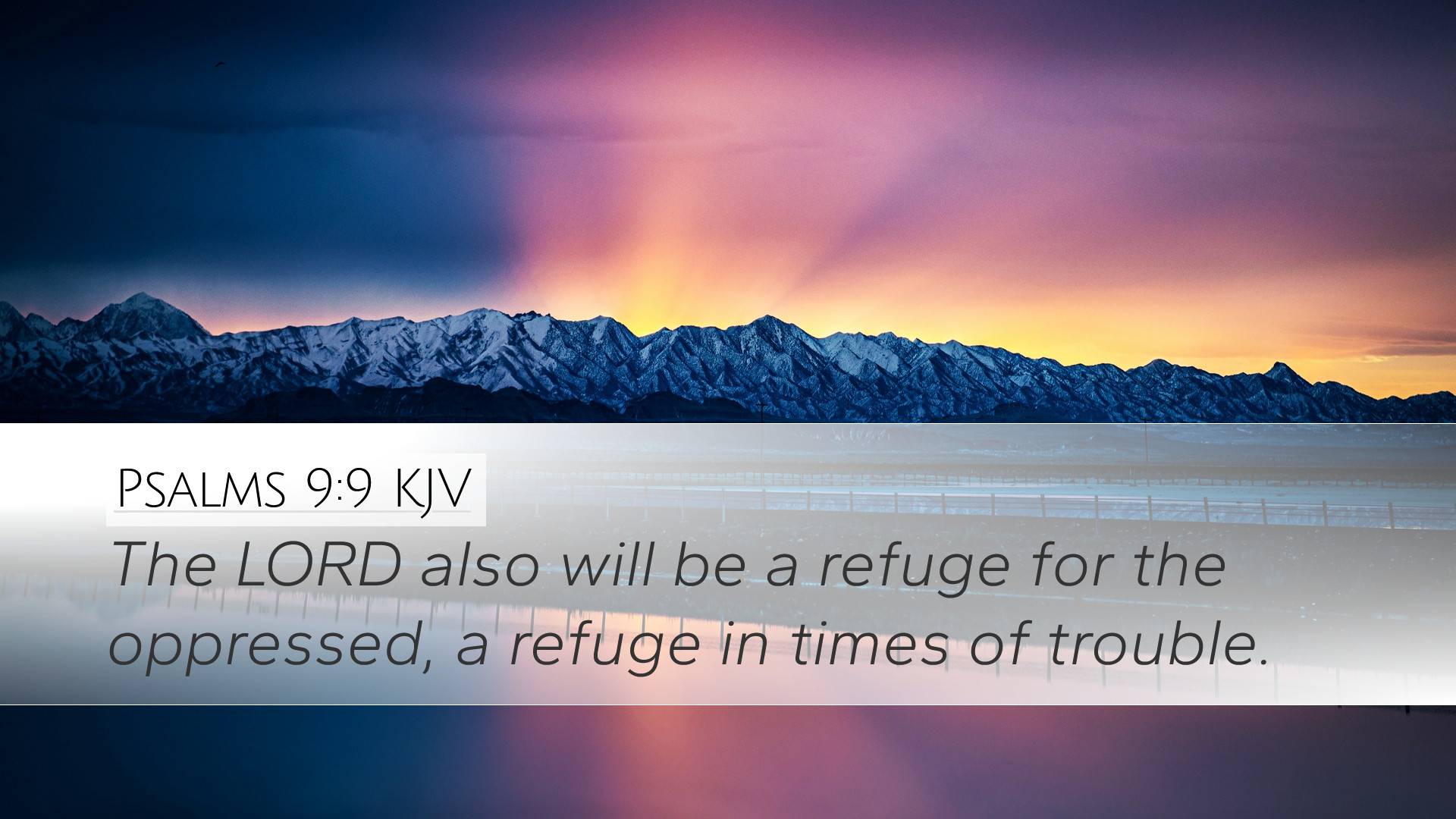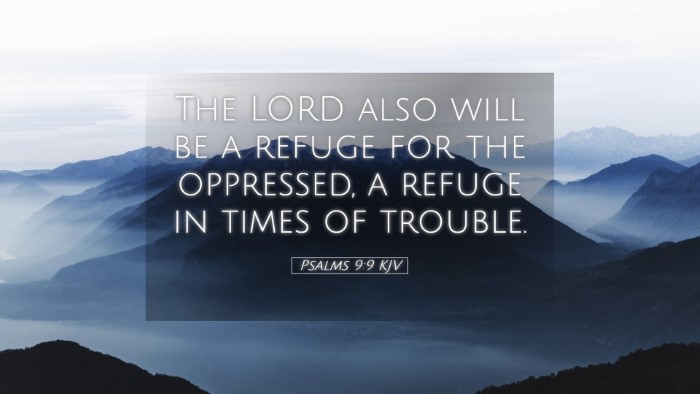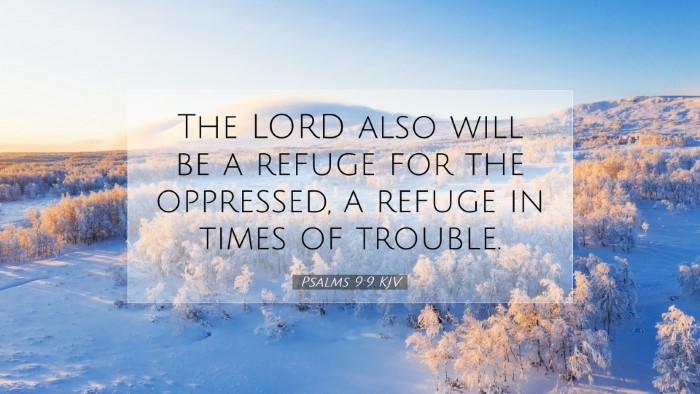Psalms 9:9 - Commentary
Psalms 9:9 reads: "The Lord also will be a refuge for the oppressed, a refuge in times of trouble." This verse serves as a profound declaration of God's nature as a protector and refuge for those in need. Through insights from notable public domain commentaries, we can explore the theological implications and practical applications of this verse.
Verse Analysis
This verse can be broken down into two key components:
- The Lord as Refuge: The term "refuge" indicates a place of safety and comfort. It suggests that God provides shelter and protection for the oppressed.
- For the Oppressed: This refers to those who are suffering or burdened, implying that God has special concern for the marginalized and downtrodden.
Theological Insight
Matthew Henry emphasizes that God not only observes the downtrodden but actively engages to safeguard them. His commentary highlights that the term “oppressed” encompasses both physical and spiritual dimensions of suffering. Henry suggests that the state of oppression, whether social, economic, or spiritual, calls for divine response.
Albert Barnes adds that this verse reflects a deeper truth about God's character. He argues that the Lord's protection is both a present reality and a future promise, assuring believers that they can trust in His provision even in the darkest times. Barnes points out that “in times of trouble” signifies the relentless challenges faced by individuals, symbolizing the vicissitudes of life that require a steadfast refuge.
Adam Clarke relates this passage to the broader context of human suffering and divine grace. He poignantly notes that oppression serves a dual purpose: it draws individuals closer to God and strengthens their faith in His promises. Clarke also suggests that God’s role as a refuge reveals His infinite mercy, as He is always available to those who seek Him earnestly.
Exegesis of Key Terms
Understanding the key terms in this verse enhances our comprehension of its depth:
- Lord: Implies sovereignty and authority, suggesting that the one who provides refuge is not just a helper but the ultimate ruler of the universe.
- Refuge: Conveys a sense of shelter and safety, depicting an intimate relationship where individuals can find solace from life’s storms.
- Oppressed: This term encompasses all who are subjected to injustice or harm, highlighting God’s heart for the vulnerable in society.
- Trouble: Indicates periods of distress or calamity, reinforcing the idea that God is actively present in our struggles.
Practical Implications for Believers
This verse holds significant implications for pastoral care and individual believers:
- Encouragement in Suffering: Pastors can draw from this verse to remind congregants that God is present with them during trials, offering comfort and hope.
- Call to Action: Believers are encouraged to act as instruments of God’s refuge by ministering to the oppressed and marginalized in their communities.
- The Assurance of God’s Presence: This verse reassures individuals facing challenges that they are not alone; God is their refuge, providing stability amidst chaos.
Reflection and Application
As theologians and scholars reflect on Psalms 9:9, consideration of the personal and communal aspects of faith becomes paramount:
- Personal Reflection: Individuals should examine their lives for areas of struggle where they need to seek God's refuge. Acknowledging one's vulnerability opens the door for experiencing grace and healing.
- Community Engagement: Churches and religious organizations should focus on outreach programs aimed at empowering the oppressed, echoing God's heart as depicted in this verse.
- Spiritual Growth: Embracing God's refuge fosters spiritual maturity, nurturing believers through trials while building a deeper trust in Him.
Conclusion
Psalms 9:9 stands as a comforting reminder of God's unwavering support for those who are oppressed. Drawing from the insights of Matthew Henry, Albert Barnes, and Adam Clarke, we see a comprehensive picture of a God who is not only aware of our troubles but also actively intervenes to provide sanctuary and relief. For pastors, students, theologians, and scholars, this verse is not just a theological assertion but a life-giving promise that inspires both worship and action. As we engage with the text, may we too become vessels of God's refuge, reaching out to those in need and continually finding solace in His steadfast presence.


